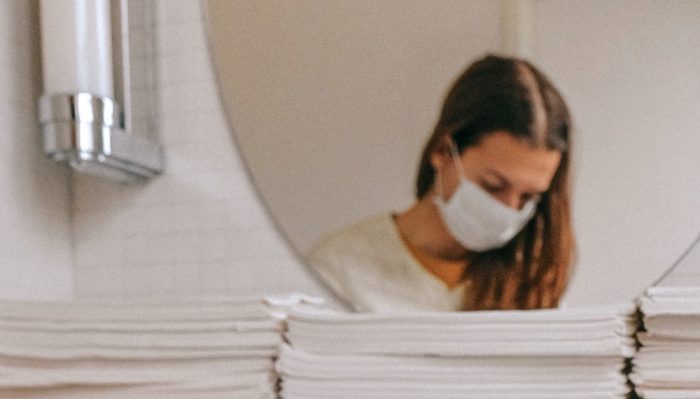Check out Elephant’s Continually-updating Coronavirus Diary. ~ Waylon
~
Checking my email over coffee last month, I discovered a contact through my website.
This generally will happen if someone runs into one of my articles, follows the link to my dot com, and proceeds to write to me by clicking the link on the page.
In other words, it is always a stranger.
In the past, these emails have led to new and exciting friendships, social media relationships, and even sometimes informal opportunities to coach other writers. I have viewed each of these as my chance at putting something positive into a world we can all agree needs all of the positivity it can get.
When the email I receive is rooted in the subject of addiction and recovery, it takes on a whole different importance. Much of the time, it is a parent asking for advice in an attempt to desperately save their child’s life—but one contact I received last month was from someone who was struggling with recovery in this new COVID-19 world.
His story was one of the saddest I had ever heard. With five years clean, he reacted to the endless barrage of Coronavirus media by purchasing enough of his old drug of choice to complete a suicide, just in case he contracted the disease and wanted to forego having to suffer through its horrific course. He was in his 50s and had smoked for 30 years. He just could not see how he’d be able to survive.
The way the story ended was about how you might expect. His emergency suicide stash stayed intact for less than a week, and he no longer possessed the five years clean he worked so hard to earn.
I consoled him as best as I could. I gave him my number and told him to call anytime—but the old advice of, “Get your ass to a 12-step meeting before another day goes by,” was no longer an option. Meetings, of course, have all been suspended, and “Zoom” is where all the recovery is taking place currently.
Zoom meetings are a bit more challenging than you might expect. There’s a wonderful international one that goes on seven days a week and 24 hours a day, but it just does not give the person struggling with substance use issues the sort of solace that human body connection has always offered. There is a reason why there is so much hugging that goes on inside of a Narcotics Anonymous meeting.
I credit that warm connection with others as the secret ingredient that saved my life nearly 10 years ago. And as much as I try to wrap my head around what it might have felt like if I were trying to accomplish the same thing today, it’s nearly impossible to imagine.
Getting out of my house, hopping on a bus, and getting to that church basement was as much a part of the process as the 90 minutes in the meeting. I was participating in the process of saving my own life by engaging in a series of actions. Each action I performed—standing at the bus stop, asking another addict for a ride home—just reinforced my commitment.
All of these different X factors are discontinued until further notice, so one would need to try to go through the process of counting clean days, one of the more integral parts of early recovery, without the people in the room clapping, the hugs, and the key tags that represent the milestones of 30, 60, 90 days without using. There is no bad coffee to drink, no cheap cookies to eat, no warm conversation outside in the church parking lot.
Of course, I have heard stories of guys getting clean in prison with a much more challenging set of variables—so it’s clearly possible to accomplish—but we should try to remember that sobriety for the addict is a monumental task and every roadblock along the way makes it that much more difficult.
Just because our running tallies of the dead are currently focusing on those afflicted with COVID-19 does not mean that opioid overdoses have stopped. As a matter of fact, they’ve gotten a bit worse.
Before COVID, people who overdosed were left for dead for fear of the legal consequences that accompanied calling 911 or driving the person to the hospital. You need only imagine that those instances have been exacerbated when the hospitals are seen as certain death traps. It’s too early and chaotic in the world to know what the statistics are, but I can promise that things have not improved.
My new friend called again last night to tell me that, at two weeks sober, he is once again beginning to feel better. He feels a bit ashamed of losing the years he accrued before his relapse, but we always try to discuss the larger meaning behind why things happen. It’s the best we can do.
It’s not quite as warm as a hug or a cup of coffee at a diner after the meeting, but—right now—it’s the best that we can do.









Read 16 comments and reply